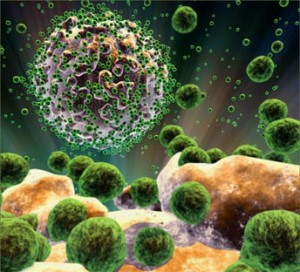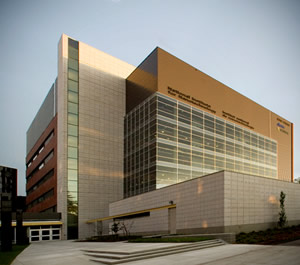
Canada’s Globemail has an article titled “Science of tiny raises big hopes, big fears” written by Dean Bennet that gives a captivating view of the emerging field of nanotechnology. If you have the time and interest then please give this article a read. If not, then check out our shorter summary and review below:
The article begins by reminding us that nanotechnology is already pervasive in our daily lives. From a previous Hub post we note that last year $174 billion worth of products were created that incorporated some sort of nanotechnology into their manufacture and this figure is projected to jump to $3 trillion in a decade or less.
A sampling of how nanotechnology has creeped into our lives:
“Goodies tumble in from all points of the compass: stink-free socks from Taiwan, spray-on condoms and germ-resistant chopsticks from China, deep-penetrating skin cleanser from Canada, dirt-repelling windshields from Australia, more-breathable bed sheets from the United States, super bandages from Britain and graffiti-busting paint from Mexico.”
The article then moves on to give a fascinating description of Canada’s National Institute for Nanotechnology (image below ), the country’s front-line command post in nano’s new world order:
“Completed two years ago at a cost of $52-million, this box-like construction of concrete, glass and steel is engineered to ruthlessly eliminate the slightest vibration that could wreak havoc on the particles being scanned and sectioned.
A ribbon of rubber on the ground floor reduces the hum of elevators, heating and lighting equipment on one side from affecting the lab equipment on the other.
If you talk in the hallway, you are shushed and shooed to prevent sound waves from penetrating the labs. Heat does not blow into the lab; it gently bleeds through overhead tubes. The temperature remains constant to prevent expansion and contraction.
There are 200-plus staffers from more than 30 countries”
Nanotechnology holds great promise for mankind, but also great risk and several legal and moral challenges:
“What about ethics and privacy? What happens when cameras get so tiny you can barely see them, or marketers implant microscopic tracers in every item and sell to the highest bidder a list of what you bought when and where? If new technology can clean up the world’s water supply, does anyone have the moral right to withhold it? And no one wants to imagine the future if al-Qaeda gets hold of this stuff.”
Image from top: source



